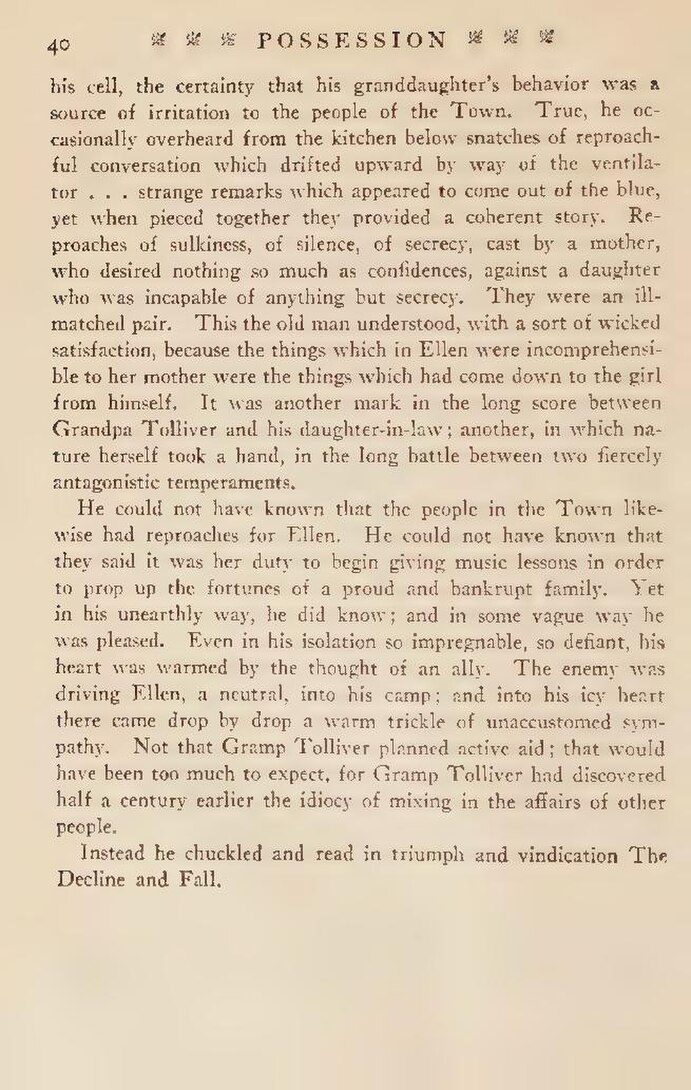his cell, the certainty that his granddaughter's behavior was a source of irritation to the people of the Town. True, he occasionally overheard from the kitchen below snatches of reproachful conversation which drifted upward by way of the ventilator . . . strange remarks which appeared to come out of the blue, yet when pieced together they provided a coherent story. Reproaches of sulkiness, of silence, of secrecy, cast by a mother, who desired nothing so much as confidences, against a daughter who was incapable of anything but secrecy. They were an ill-matched pair. This the old man understood, with a sort of wicked satisfaction, because the things which in Ellen were incomprehensible to her mother were the things which had come down to the girl from himself. It was another mark in the long score between Grandpa Tolliver and his daughter-in-law; another, in which nature herself took a hand, in the long battle between two fiercely antagonistic temperaments.
He could not have known that the people in the Town likewise had reproaches for Ellen. He could not have known that they said it was her duty to begin giving music lessons in order to prop up the fortunes of a proud and bankrupt family. Yet in his unearthly way, he did know; and in some vague way he was pleased. Even in his isolation so impregnable, so defiant, his heart was warmed by the thought of an ally. The enemy was driving Ellen, a neutral, into his camp; and into his icy heart there came drop by drop a warm trickle of unaccustomed sympathy. Not that Gramp Tolliver planned active aid; that would have been too much to expect, for Gramp Tolliver had discovered half a century earlier the idiocy of mixing in the affairs of other people.
Instead he chuckled and read in triumph and vindication The Decline and Fall.
